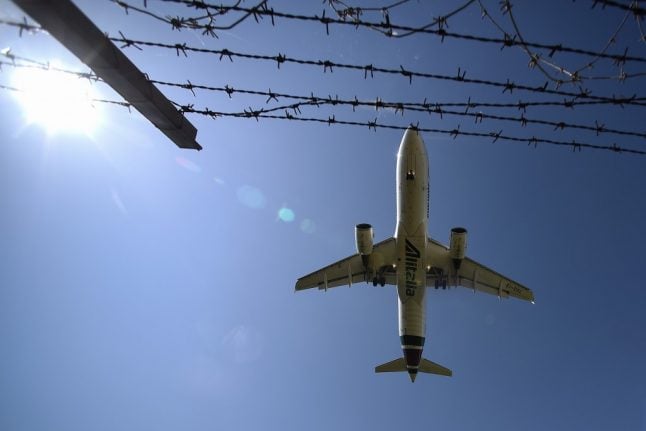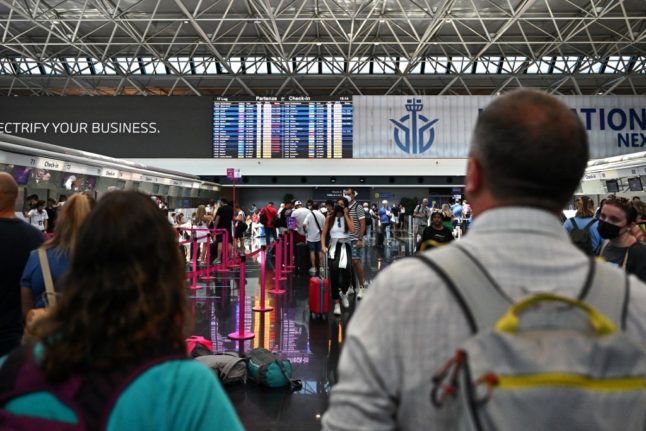Health Minister Roberto Speranza said in a statement that a one-week suspension of flights had been ordered, and said the government would consider mandating extra precautions for people arriving in Italy from outside the EU or Schengen Zone.
“Quarantine is already required for non-EU and non-Schengen arrivals, but after all the sacrifices made we cannot allow infections to be imported from abroad,” Speranza said. “It's better to follow the line of maximum caution.”
Of 225 passengers arriving from Dhaka on Monday, 21 tested positive for the disease, Lazio's top health official Alessio D'Amato said on Tuesday, calling it a “veritable viral 'bomb' that we've defused”.
READ ALSO:
- Here are the current rules on travelling to Italy
- Italian region introduces €1,000 fine for breaking quarantine
- 'Treated like criminals': Italy turns away American tourists on private jet
As of Monday, 32 coronavirus cases had been reported within the Bangladeshi community, Lazio president Nicola Zingaretti wrote in the decree. It was unclear whether that number included the positive cases among the passengers who arrived Monday.
Seventeen of the 32 cases were “imported” from abroad and 15 involved people in contact with those patients, the decree said. It added that a two-week quarantine for passengers from Bangladesh had been insufficient to contain transmission of the virus.
There are currently 870 coronavirus cases in Lazio, with 14,709 in Italy overall, according to the latest official figures.
Since the crisis erupted in Italy in late February, 34,869 people have died of coronavirus, but the rate of new infections has slowed considerably, leading the government to roll back most lockdown restrictions. Still, Speranza has warned of a possible second wave in the autumn, and has cautioned Italians to wear masks and avoid crowds, among other measures.
“The objective is to prevent the outbreak that is currently seen in Rome in the Bengali community from multiplying,” Francesco Vaia, health director of Rome's Spallanzani hospital, told news wire AGI.
“It's essential to put under control airports, ports and stations and activate a health surveillance on citizens coming from the non-Schengen area and in particular from countries where the virus is spreading.”

A Rome resident and Bangladeshi national at work in a petrol station. Photo: Andreas Solaro/AFP
Beginning last month, passengers from Dhaka have arrived on special flights intended to bring Bangladeshi nationals residing in Italy back to their European homes and jobs following the coronavirus lockdown.
Italy's borders are only open to those passengers coming from within Europe's Schengen zone, as well as those from another 14 countries — a list that does not include Bangladesh.
Citizens of Bangladesh and other countries not on the 'safe list' are allowed to re-enter Italy if they live here, so long as they self-isolate for 14 days after their arrival.
Lazio has sought to offer more testing for Bangladeshi residents, who number about 30,000 in Italy's capital, but only three people showed up at a special clinic offering free testing on Monday, Il Messagero daily said.
About 45,000 Bangladeshis reside in Italy, according to national statistics agency Istat. Migration from Bangladesh to Italy has grown in recent years and many within the community work in low-paid, undeclared jobs.
Other cases involving Bangladeshis with links to flights from Dhaka have also been seen in Tuscany, according to news reports.



 Please whitelist us to continue reading.
Please whitelist us to continue reading.
Member comments